John Cooney: Martin treads a righteous path beset with obstacles
By John Cooney
Monday February 08 2010
Irish Independent
SIX years after taking over from the disgraced Cardinal Desmond Connell as Archbishop of Dublin, Diarmuid Martin is highly trusted by the public nationwide for his determined commitment to root out paedophile priests.
In fact, he is probably the only bishop who is fully trusted to put the welfare of children above shielding the church from scandal.
The former Vatican diplomat, who did not seek the emotionally draining job of cleaning up the clerical abuse mess left by Cardinal Connell, has also proved himself to be the Irish church's most effective communicator in enforcing the best standards of child protection.
Yet his stock among his fellow bishops and his own clergy in the Dublin Archdiocese has plummeted to its lowest level since he took charge in April 2004. Just as a prophet is not recognised in his homeland, so too, it would seem, a church reformer is fated to meet resistance from defenders of the status quo.
As early as spring 2006, when he was just two years at the helm of the biggest of Ireland's 26 dioceses, sly digs were being made by other bishops about how detached the Archbishop of Dublin was from their largely rural perspectives and problems. Among social gatherings of Dublin priests, the French nickname was quickly given to him of 'St Martin of Tours', a reference to his habit of attending conferences and giving speeches on the international circuit.
Last month, the archbishop even found time out from his demanding central role in preparations for this month's summit in Rome of the Irish bishops with Pope Benedict to address the prestigious annual get-together of the movers and shakers of the business world in Davos, Switzerland.
As early as 2006, too, some of his priests were telling him at private meetings of clergy that they regarded him as a temporary phenomenon who was dispatched to Dublin as the Pope's man but who would be called back to high office in the Vatican some time after the publication of the Murphy report into the cover-ups of abuse in the archdiocese.
Individual priests challenged his declared policy of immediately removing from office priests against whom complaints or even suspicions of inappropriate behaviour towards children were made. The priests complained that they were being deprived of due process, and that ensuing media publicity would severely damage their reputations even if later acquitted of unfounded charges. The archbishop has tried to keep such cases out of the news ahead of any criminal court appearances, but he was not for turning on church disciplinary policy.
This criticism of his leadership, however, has reached new heights amounting almost to open revolt. An unexpected channel for airing these grievances has come from a church newspaper which was traditionally a docile propaganda medium of the bishops, but which is now to the fore in campaigning for extensive reform of an over-clericalist church.
The current issue of the 'Irish Catholic' has reported the minutes of a private meeting of up to 25 priests held in January at which it was claimed that Dr Martin has become "a source of division", and had adopted "a dictatorial manner".
The priests claimed it was "a grave injustice" that Dr Martin "hung out to dry" six former Dublin auxiliaries named in the Murphy report, whom he called on to take responsibility for being part of a system of church governance that put the prestige of the church above the welfare of children.
This 'underground' meeting called for an analysis of the Murphy report as a matter of urgency, a move which is echoed in the February issue of 'The Furrow', the Maynooth journal for clergy, where retired Dublin priest, Fr Padraig McCarthy, openly questions its conclusion that the majority of Dublin priests were complicit in the concealment of abuse by simply choosing to turn a blind eye.
Fr McCarthy makes the astoundingly arrogant claim that his analysis is an "objective" reading of the report, and he suggests that "what was and still is missing is a considered diocesan response". In other words, Fr McCarthy has laid down the gauntlet to Dr Martin with his implied criticism that his boss's response has been unobjective and unrepresentative of clerical opinion in the archdiocese.
When I asked Dr Martin yesterday if he accepted he was "a divisive figure", he said that this stemmed from the question that was put to him at a meeting of priests shortly after his return to Dublin from Rome where he and Cardinal Brady briefed Pope Benedict just days after the November 26 publication of the Murphy report.
Dr Martin recalled that at this meeting he was asked for his attitude to Murphy's shocking findings. "I believe my reaction was to recognise something terrible happened on our watch," Dr Martin replied. "We got it spectacularly wrong. We have to admit that. And admit it unconditionally."
It was a direct answer to the often unsourced criticisms of Dr Martin's unconditional position.
With the Rome summit only a week away, nothing short of an unconditional recognition of what victims suffered from clergy will be acceptable to the Catholics of Ireland, whatever the sniping from a minority of grassroots clergy.
Dr Martin cannot afford to lose the coming battle for Pope Benedict's ear.
jcooney@independent.ie
- John Cooney
Abonneren op:
Reacties posten (Atom)
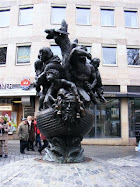
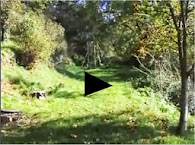
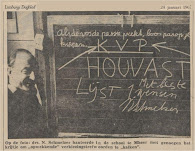

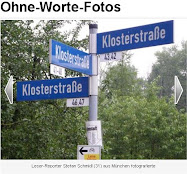
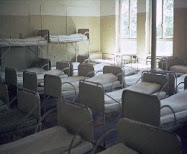





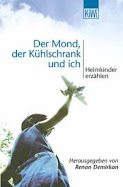
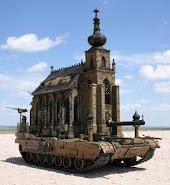
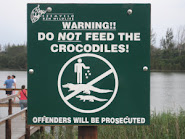

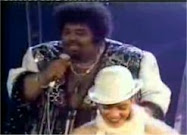
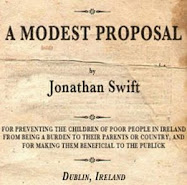


Geen opmerkingen:
Een reactie posten